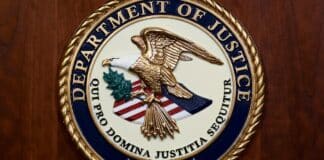Financial experts are pushing back against the Biden administration’s proposal to include a provision in the $3.5 trillion spending bill to extend the IRS’ reach to have bank transactions over $600 reported. The Democrats’ goal is to garner $463 billion in additional personal income tax over the next decade.
The Biden administration has said it is merely trying to ensure that wealthy Americans pay their fair share of taxes and don’t hide money or assets.
However, experts say giving such power to a regulatory body of the U.S. government is an overreach that could infringe on privacy and place undue regulatory and compliance burdens and costs on banks and other financial institutions. Plus, taking snapshots of the massive amount of transactional data in the U.S. banking system could lead to erroneous conclusions by the IRS.
In plain English, industry insiders and experts say that extending the powers of the IRS is just not practical, too expensive, and possibly a dystopian invasion of people’s privacy.
Harvey Bezozi, a Newsmax Finance Insider and self-proclaimed “IRS tax wizard” whose clientele includes a number of well-known rock musicians and Hollywood actors, says taking snapshots of his clients’ very fluid holdings could lead the IRS to mistake the purpose of these cash flows.
“Incoming cash deposits that are not subject to taxation can take the form of distributions to shareholders or partners of previously taxed business income, loans from businesses owned by the borrower or from outside lenders, retirement plan loans, or, more recently, proceeds from the SBA PPP [Small Business Administration Paycheck Protection Program] Shuttered Venue grants,” Bezozi says. Due to the COVID-19 pandemic, he explains, these grants helped clients survive the touring lockdown and provided working capital for current touring budgets.
These and other types of deposits, Bezozi says, “may be income subject to taxation in one of several ways, or they may be nontaxable deposits [that are simple] cash flows.”
In agreement is Gene McManus, a certified public accountant and financial planner who’s a partner with AP Wealth Management in Augusta, Georgia. He says empowering the IRS to scrutinize all financial transactions over $600 would open a floodgate of information that could be uncontrollable. “It would be akin to letting sunlight into a solitary confinement prison cell,” McManus tells Newsmax. “Light would show on things [that have] been in the dark for eons. As much as we think our economy has become electronic, there are many transactions that take place via cash.”
McManus also notes how popular it has become for people to exchange money through Venmo and social media sites — mostly cash deals. In fact, many people send money via the ACH Network, where electronic payments are arranged through their local bank.
Bezozi and McManus share two questions the government is likely to ask about this information: First, where did the cash come from to pay for the merchandise? And second, is there a taxable gain on the sale?
It is inevitable that the government would succeed in collecting more taxes if it were to expand its reach through the IRS, McManus says — and that would cause many fruitful one-on-one transactions between enterprising individuals to freeze.
Concerns Over Big Government Grow
Mark Matson, founder and CEO of Matson Money, says his clients are increasingly concerned about the infrastructure bills the Biden administration — with a Democratic majority in Congress — is proposing, as they will result in onerous taxes.
Matson Money’s clients include many entrepreneurs and wealthy individuals who have already had their businesses shut down by the government because of COVID-19.
“Many of my clients are family-oriented and are big believers in the American dream,” Matson tells Newsmax Finance. Since the onset of the worldwide pandemic, he says the government has dictated whether his clients can open a business, observe their religion in a place of worship, travel, or express their freedom of speech. “They are very apprehensive, overall, with the direction the country is going in,” Matson says.
The wealth manager recently spoke with Reagan economist Arthur Laffer, of “Laffer Curve” fame and a Matson Money board member, about the government’s growing reach into people’s personal information.”
“[President] Biden says he doesn’t have anything against rich or successful people, but this proposed measure appears to be very vindictive,” Matson says. It would position the government to be able to “confiscate as much wealth as possible and transfer it back to government coffers in the form of socialistic programs.”
Forty large banks and trade associations — including the American Bankers Association, Mortgage Bankers Association, and National Bankers Association — recently banded together to send a letter to House Speaker Nancy Pelosi and Minority Leader Kevin McCarthy, urging the lawmakers to drop the IRS data measure.
“These measures would create significant operational and reputational challenges for financial institutions, increase tax preparation costs for individuals and small businesses, and create serious financial privacy concerns,” they wrote. “We urge members to oppose any efforts to advance this ill-advised new reporting regime.”
And it’s not just the U.S. government — foreign governments also are looking to extend their oversight into people’s lives, according to some reports. According to one report, the plan is just one part of a government “domestic surveillance program.” Reason.com called it “a tripartite strategy for transforming the entire global financial system into a harmonious, haven-free collection funnel to the IRS.”
Sen. Elizabeth Warren, D-Mass., has proposed a similar bill, which Reason.com says advocates for “a vast, intrusive financial surveillance system in the name of closing the ‘tax gap.’”






